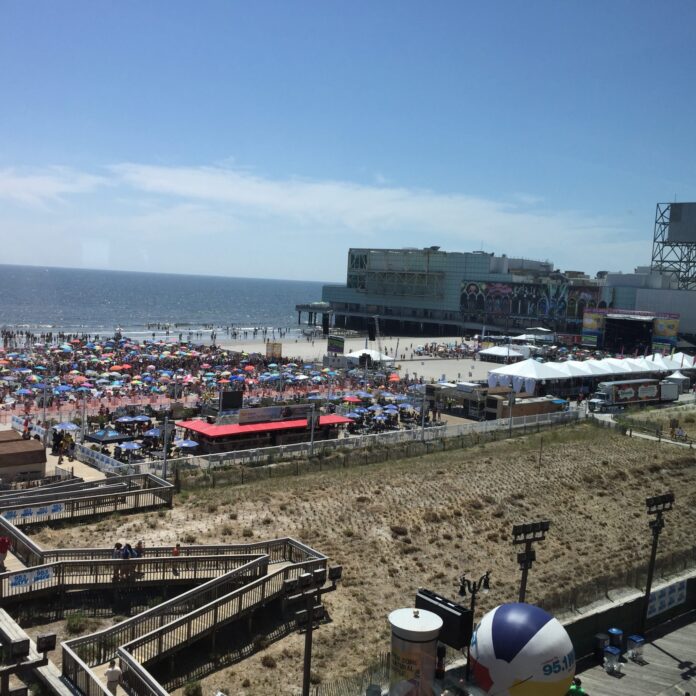The FirstNet early builder project in New Jersey, known as JerseyNet, provided coverage at a pair of recent weekend beach concerts in Atlantic City, enabling the police department to sidestep the usual crashing of their mobile security cameras and actually use the system as it was meant to be used.
It was the first time the Atlantic City Police Department used the LTE Band 14 network to support live operations, according to Lt. James Sarkos of the ACPD, who is the department’s Broadband Technology Opportunities Program project manager.
“We’ve supported a lot of large events here in Atlantic City,” Sarkos said, adding that for more than a decade, “one of the things we’ve noticed is that when we have large numbers of people show up, we always lose our cellphones [coverage].”
Sarkos said the department also has video cameras mounted on poles that it uses to boost its situational awareness when dealing with large crowds. The cameras rely on cellular data cards to support their video streams.
“They work flawlessly before the event, and after – but as soon as everything gets started, they freeze and drop,” Sarkos said. “That’s the time when we need them the most.”
This time, though, the system worked. Atlantic City hosted two beach concerts – Maroon 5 on Aug. 15, and Rascal Flats on Aug. 16 when the JerseyNet system was used.

Each event involved a reported 50,000-plus people packed onto the beach and boardwalk area. The photo above comes from police cameras prior to the event; the photo at right shows the extent of the crowd during the Maroon 5 concert. JerseyNet is one of a handful of early-builder projects that FirstNet inherited and that have been funded by BTOP. The network is meant to be a testbed for FirstNet to explore the role that “deployables” can play on a national and state level, due to the fact that they typically do not have to go through site approval processes because they are not permanently placed, and can be quickly moved to areas where stationary infrastructure may be wiped out in a disaster or where terrestrial networks do not reach.
Mutualink is one of the vendors supporting the JerseyNet project. According to company President and CFO Colin McWay, the company enables interoperable communications for public safety by taking two-way radio, video, telephony or data streams and putting them into Internet Protocol pipes – including, now, the new Band 14 pipe provided by FirstNet.
Jeff Doran, senior project manager for Mutualink, who has worked with ACPD on their deployment, said that while having a system that worked as it was meant to was a bit “anticlimactic,” it was a significant change from the police department’s previous experiences – and exactly the point of FirstNet, which was created in the wake of the Sept. 11 attacks to address interoperability and network issues in challenging environments for first responders.
The network, Doran said, “just worked.”
Deputy Chief William Mazur of ACPD said that being able to use the FirstNet network “couldn’t be more timely for us. We are a tourist town, and we have to make the most of our tourist season, which is essentially the summer months.”
Mazur added the department expects to handle more such events as Atlantic City is putting focused effort on expanding its tourism beyond casino gaming – and one of its strategies is to host more outdoor functions and attractions, including more beach concerts slated for next year.
“This is going to get a lot of use,” Mazur said.

